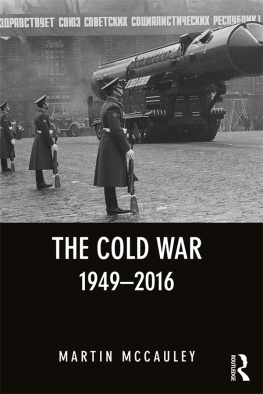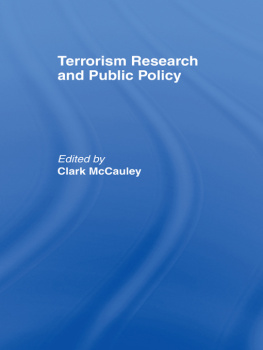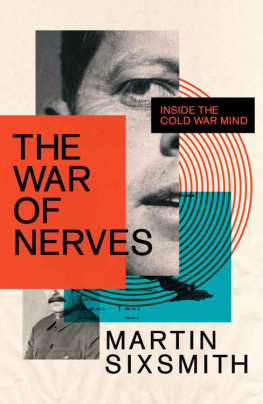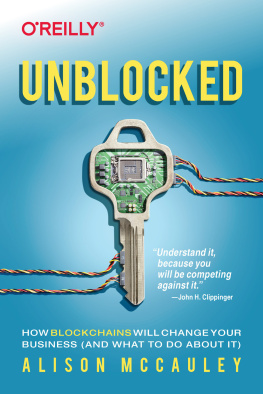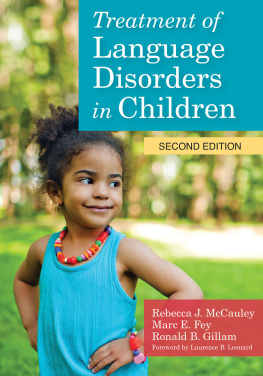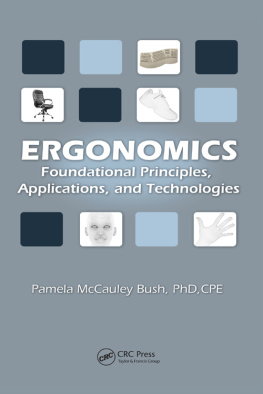Martin McCauley - The Cold War 1949–2016
Here you can read online Martin McCauley - The Cold War 1949–2016 full text of the book (entire story) in english for free. Download pdf and epub, get meaning, cover and reviews about this ebook. publisher: Taylor & Francis (CAM), genre: Politics. Description of the work, (preface) as well as reviews are available. Best literature library LitArk.com created for fans of good reading and offers a wide selection of genres:
Romance novel
Science fiction
Adventure
Detective
Science
History
Home and family
Prose
Art
Politics
Computer
Non-fiction
Religion
Business
Children
Humor
Choose a favorite category and find really read worthwhile books. Enjoy immersion in the world of imagination, feel the emotions of the characters or learn something new for yourself, make an fascinating discovery.
- Book:The Cold War 1949–2016
- Author:
- Publisher:Taylor & Francis (CAM)
- Genre:
- Rating:5 / 5
- Favourites:Add to favourites
- Your mark:
- 100
- 1
- 2
- 3
- 4
- 5
The Cold War 1949–2016: summary, description and annotation
We offer to read an annotation, description, summary or preface (depends on what the author of the book "The Cold War 1949–2016" wrote himself). If you haven't found the necessary information about the book — write in the comments, we will try to find it.
The Cold War 1949–2016 — read online for free the complete book (whole text) full work
Below is the text of the book, divided by pages. System saving the place of the last page read, allows you to conveniently read the book "The Cold War 1949–2016" online for free, without having to search again every time where you left off. Put a bookmark, and you can go to the page where you finished reading at any time.
Font size:
Interval:
Bookmark:
First published 2017
by Routledge
2 Park Square, Milton Park, Abingdon, Oxon OX14 4RN
and by Routledge
711 Third Avenue, New York, NY 10017
Routledge is an imprint of the Taylor & Francis Group, an informa business
2017 Martin McCauley
The right of Martin McCauley to be identified as author of this work has been asserted by him in accordance with sections 77 and 78 of the Copyright, Designs and Patents Act 1988.
All rights reserved. No part of this book may be reprinted or reproduced or utilised in any form or by any electronic, mechanical, or other means, now known or hereafter invented, including photocopying and recording, or in any information storage or retrieval system, without permission in writing from the publishers.
Trademark notice: Product or corporate names may be trademarks or registered trademarks, and are used only for identification and explanation without intent to infringe.
British Library Cataloguing-in-Publication Data
A catalogue record for this book is available from the British Library
Library of Congress Cataloging-in-Publication Data
Names: McCauley, Martin, author.
Title: The Cold War 19492016 / Martin McCauley.
Description: Oxon ; New York, NY : Routledge, 2017. | Includes
bibliographical references and index.
Identifiers: LCCN 2016056845 | ISBN 9781138999008 (hardback :
alk. paper) | ISBN 9781138999015 (pbk. : alk. paper) |
ISBN 9781315213309 (ebook)
Subjects: LCSH: Cold War. | World politics19451989. |
World politics1989
Classification: LCC D843 .M3344 2017 | DDC 909.82/5dc23
LC record available at https://lccn.loc.gov/2016056845
ISBN: 978-1-138-99900-8 (hbk)
ISBN: 978-1-138-99901-5 (pbk)
ISBN: 978-1-315-21330-9 (ebk)
Typeset in Galliard
by Apex CoVantage, LLC
Visit the eResources: http://www.routledge.com/9781138999015

Greek mythology holds that Zeus once released two eagles at each end of the earth and ordered them to fly towards each other. A sacred stone, called the omphalos the navel of the world was placed where the eagles met. China saw itself as the resting place of the omphalos, the centre of the earth; then the Persian Empire; then the Ottoman Empire. The prominence of Western Europe from the sixteenth century led to the belief that the omphalos resided in the great European capitals. Eurocentric history saw Ancient Greece giving birth to Rome, Rome to Christian Europe, Christian Europe to the Renaissance, the Renaissance to the Enlightenment, the Enlightenment to political democracy and the Industrial Revolution. In the twentieth century the omphalos resided in Berlin but that soon passed; then Moscow and Washington claimed possession of the sacred stone. Will the twenty-first century see it again move back to Beijing?
Communism was the greatest challenge to the US and its allies in the second half of the twentieth century. Communism, wearing Chinese garb, is the great challenge of the present century. Terrorism is a secondary challenge. Communism, represented by the Soviet Union, China, Eastern Europe and a host of Third World countries, was easily comprehensible. Its ideas and ideals could be traced back to the European Enlightenment in the eighteenth century. It was a secular religion and its goal the kingdom of heaven on earth. Terrorism, with its suicide bombers, by way of contrast, is almost incomprehensible as its practitioners prefer the promise of heaven after death to living on earth. It presents a great intellectual challenge, probably a greater intellectual challenge than the ideas and ideals of Karl Marx.
On reflection, it is clear that the thinking of the rulers in the Kremlin was informed by the tenets of Marxism, but their actions were those of traditional Russian politicians engaged in their countrys influence and security. Except for a few years after the October Revolution, national interests took precedence over international interests. Protecting the revolution at home was given the highest priority.
Security is of the greatest concern to Russia during its history of a thousand years and more. The Mongols ruled Russia from 1240 to 1480. The country was invaded by a European power three times in just over a century: in 1812 by Napoleon, in 1914 by Kaiser Wilhelm, and in 1941 by Adolf Hitler. In contrast, modern American insecurity was only in the mind. Its geographical location ensured that it has never known invasion and occupation since gaining independence from Britain. Culture is also a significant factor in international behaviour. One can see the Soviet Unions attitude and actions as a continuation of the imperial Russian tradition. Blessed (or cursed) with few natural frontiers, Russia was always on the move. So was the US until the French and Spanish had been vanquished. The collapse of the Soviet Union left the US as the sole superpower and for a decade or so afterwards, inebriated with the wine of victory, believed it could shape the world according to its own norms.
The searing experience of lost wars in Afghanistan and Iraq has changed all that. Nowadays Washington is reluctant to become embroiled in conflicts far from its shores. If there is such a thing as the Obama Doctrine it consists of retreating from a world mission and concentrating on domestic affairs. How things have changed.
The other factor which is changing the global balance of power is China. The US is still the only superpower and militarily is the greatest force on the planet, but Beijing has proclaimed the China Dream which amounts to the Middle Kingdom ascending to the throne of world dominance. It still declares itself a communist power but its communism is unrecognisable from the version practised by the Soviet Union and its empire. It is single-party rule politically but economically it is capitalist. Just as the Soviet Union introduced a state and ideology unknown to the world in 1917, the Middle Kingdom is developing a system unknown hitherto. The commanding heights of the economy are in the states hands and thus it can be labelled state capitalism. However, the much more dynamic part of the economy consists of small- and medium-sized enterprises (SMEs). Can these two coexist or will capitalism, as represented by the SMEs, eventually devour communism? Capitalism, after all, in order to flourish requires some elements of democracy. That is the experience of the last two centuries. Or will communist China evolve in such a way as to overturn the historical record? Xi Jinping and his team face a fascinating challenge as they turn the Middle Kingdom into a global powerhouse.
The Cold War during the second half of the twentieth century embraced the whole world; the Third World, especially, paid a heavy price for this. A nuclear war could not be fought by the superpowers so they engaged in proxy wars. This book spells out the genesis and conclusion of these conflicts. The Cold War was fought on many planes: political, economic, military, cultural, sporting, ideological, architectural, religious indeed there was no aspect of human endeavour which was excluded. It is an intriguing story, and the reader can experience some of the highs and lows of the various contests.
So the old Cold War is over but there is a new Cold War between old adversaries: Russia and the US have reignited the enmity which existed under Soviet communism. This reveals that Marxism was not the dominant feature of the old conflict. Had it been so, everything would be sweetness and light between Moscow and Washington today. Great power rivalry was and is a constant factor. Relations between the old enemies have reached a point where the US 2015 National Military Strategy judges Russia to be the greatest security threat. How has it come to this in a short span of twenty-five years?
Font size:
Interval:
Bookmark:
Similar books «The Cold War 1949–2016»
Look at similar books to The Cold War 1949–2016. We have selected literature similar in name and meaning in the hope of providing readers with more options to find new, interesting, not yet read works.
Discussion, reviews of the book The Cold War 1949–2016 and just readers' own opinions. Leave your comments, write what you think about the work, its meaning or the main characters. Specify what exactly you liked and what you didn't like, and why you think so.

